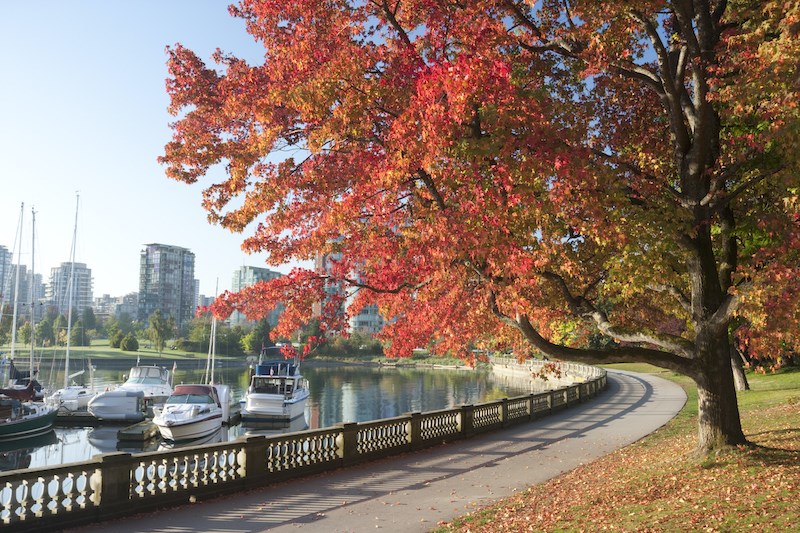Are you ready for another heat wave in the city?
As Vancouverites brace themselves for more sweltering weather, hotter-than-normal temperatures are expected to continue through the remainder of the season.
In fact, Environment Canada warns that dry, warm weather may continue through the rest of summer and into the early fall, too.
Canada's national weather forecaster will release the official fall forecast on Sept.1, the first day of meteorological fall. However, Environment Canada Meteorologist Armel Castellan says there are early indications that the toasty weather may continue into the coming season.
"It's definitely been an extremely dry and warm summer," notes Castellan. "And we're looking forward to another heat event this week starting Thursday/Friday."
Beyond the weekend, however, Castellan says the forecast doesn't look altogether "cool or wet" but that there is a potential for a "bit of a wet streak." Additionally, he notes that there is a potential for some smoke in the Lower Mainland.
"Late Sunday or Monday morning as the ridge breaks down we might see a shower or two but very, very light," he explains. "And then we have to look very deep into the forecast to see any precipitation at all."
But the three-month output that was issued at the end of July for August, September, and October continues to show probabilities of warmer-than-normal temperatures, Castellan says.
With this in mind, he cautions that precipitation is hard to predict further out and models are more accurate closer to the start of September.
Will there be another scorching hot heat wave in Metro Vancouver this summer?
Are you dreading the next heat wave in Metro Vancouver?
While you might have to be prepared for more sweltering humidity, it isn't likely that B.C. will see the same scorching daily highs that it did during the heat wave at the end of June.
"That kinda thing is a once-in-a-lifetime event," Environment Canada meteorologist Doug Lundquist told Vancouver Is Awesome.
"Let's hope that doesn't happen [again] for decades."
A heat dome forms when the jet stream migrates north, allowing an intense, high-pressure system to create a cap over hot ocean air. When that air descends, it warms. By trapping heat at the surface, the "dome" creates a feedback effect leading to sweltering conditions from day to night.



